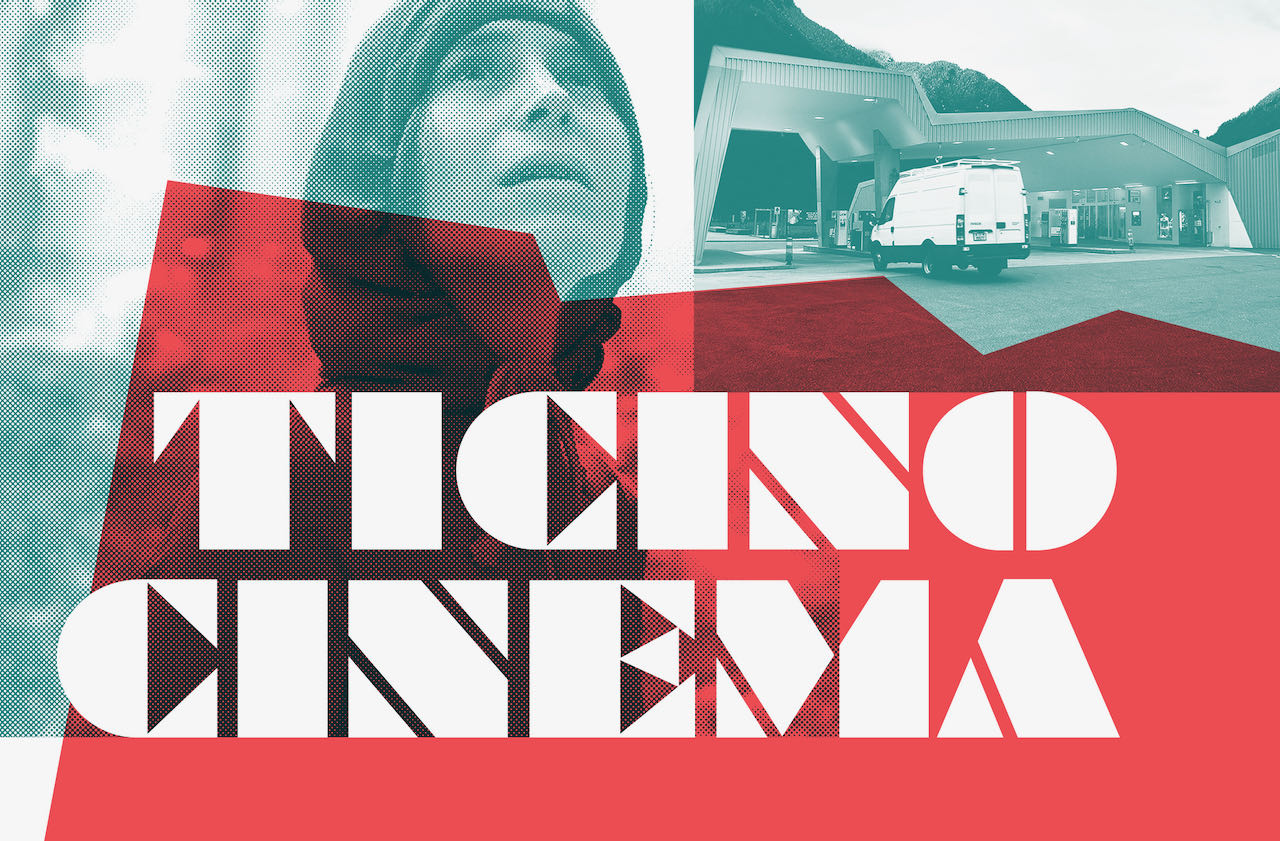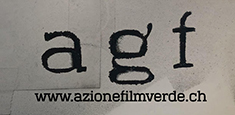The 'New Ticino Cinema' in September at the Xenix cinema in Zurich
The "Ticino Cinema" review, presented in September 2022 at Kino Xenix, turns the spotlight on the new creative wave of the Ticino film scene through screenings of Ticino-related films of recent years, meetings and special screenings.

Graphics by Nicole Barbieri.
In September 2022, Zurich's Xenix cinema - a venue for film lovers and an important meeting point for Zurich's vibrant film culture - presents the "Ticino Cinema" review, dedicated to independent cinema in Ticino. A region that has seen unprecedented growth in its film production over the past decade. "The feeling is that of being in front of a renewed wave of creative energy, which promises not to run out any time soon," comments Ticino director and screenwriter Francesco Rizzi, author of the programme introduction that we report at the end of the news. The review, which has the collaboration of the Ticino Film Commission, will be complemented by two special evenings.
The full program of the review is available on the Xenix Cinema website.
SPECIAL EVENTS
September 8, 2022
6:30 p.m. - A meeting will be held to discuss the current film scene in Ticino with Ticino filmmakers: What has led to this renewed energy in the film scene? What are the opportunities and challenges for film in Ticino today? What role does RSI television play, how do co-productions with Italy come about, what about reciprocity? And what is the significance of the strengthening of the Ticino-Zurich connection?
The evening's guests will be:
- Niccolò Castelli (film director, artistic director of the Solothurn Days, director of the Ticino Film Commission)
- Alessandro Marcionni (Head of Doc & Fiction, RSI)
- Olga Lamontanara (Cinédokké and Amka Films producer)
- Antonio Prata (distributor Noha Film, director)
- Klaudia Reynicke (director)
Moderation: Jenny Billeter (programming, co-director Kino Xenix).
The meeting will be followed by refreshments with Ticino products for which we sincerely thank Ticino Wine.
8:45 p.m. - Screening of the film SEMRET with an introduction by director Caterina Mona.
September 15, 2022
8:00 p.m. - Swiss-German premiere of the film ZAHORÍ will be presented in the presence of director Marì Alessandrini.
PROGRAM INTRODUCTION
"New Ticino Cinema" by Francesco Rizzi
Over the past decade, the small world of independent cinema in Ticino has witnessed a proliferation of new voices, fostered by a vitality and continuity in production rarely seen in the past. Numerous films have received positive feedback and the feeling is that we are facing a renewed wave of creative energy, which promises not to run out any time soon.
These are not 'schools' or movements, but the fruit of the efforts of courageous and enterprising spirits who have pooled their experience and passion and continue to create connections within Ticino itself, but also with the rest of Switzerland and abroad.
In a canton that, by its very nature, is at the centre of great flows and exchanges between different people and cultures every day, this openness to contamination represents a precious resource. A richness that is reflected in the diversity of experiences, views and stories that Ticino's cinema production offers today, tackling the paucity of means with creativity and with less and less fear of its own peculiarities.
In the following itinerary, I will try to bring out some possible connections between the films in this programme.
In my Cronofobia, a mysterious man drives around in an anonymous van. He observes a woman, who lives as if frozen in the places and memories of a world that no longer belongs to her. Uniting them, a subtle sense of anguish at the passing of time, as if inside a prison.
In Love Me Tender by Klaudia Reynicke, agoraphobia locks Seconda inside her parents' house. Having lost her few contacts with family and the outside world, she can only rely on her desperate thirst for freedom... and a blue tracksuit.
In Niccolò Castelli's Atlas, Allegra smiles and jokes on the top of a mountain, surrounded by the friends she climbed it with. Allegra is alone in the bathroom, in front of the mirror looking at the deep scars on her body. Between the two moments, an abyss. Life that changes in an instant, confronting us with fear for what lies beyond our reach.
Three films that, in different ways and tones, reflect on isolation and its overcoming. Portraits of rebellious characters, locked in their worlds made of real or mental cages, in the long-settled tension of a dull pain that cannot find comfort in words, but instead seeks an outlet in an obsessive rituality of gestures: the silent simulations of intimacy of the protagonists in Cronofobia; the curious dances with the disarranged movements of Seconda in Love Me Tender; the repeated, painful climbing exercises of Allegra in Atlas. Three psychological dramas supported by actorly evidence of remarkable complexity. Three stories of 'healing' that seek a truth of feelings far removed from sentimentality and clichés.
Far removed from romantic clichés, in this case of bucolic, rural Ticino, is Aldo Gugolz's documentary Cows on the Roof, which delivers an intense portrait, amidst light and shadow, rain and fog, of a young farmer in the Onsernone valley, who has inherited his values from a Swiss-German hippy father, together with a pasture on which to produce cheese. He will have to confront the wild beauty and harshness of mountain life, the lure of which is hard to resist, despite debts, the arrival of a son and a distressing criminal case in which he is indirectly involved.
A curious hybrid of documentary and detective story is also Moka Noir, in which director Erik Bernasconi - not without a certain irony - takes on the role of the classic hard-boiled detective and accompanies us through the industrial archaeology landscapes of Omegna, in the upper Piedmont region, in an attempt to solve a case: who killed what was Europe's most flourishing manufacture of small electrical appliances during the post-war economic boom in Italy? The workers? The entrepreneurs? Politics? Immersed in contrasting black and white images, the detective interrogates witnesses and wanders around the huge, abandoned factories as if they were crime scenes, searching for clues to explain the great crisis that has emptied an entire community of identity in recent decades.
Sometimes Ticino filmmakers look outside their territory for stories that reflect their intuitions, or that allow them to confront a part of their cultural or family roots. The latter is the case of a 'nomadic' filmmaker like Daniel Kemény, who in Sòne: takes us to the small village of his childhood, Pietrapaola, perched around an imposing cliff in deepest Calabria. Here too - as in Moka Noir - it is a question of narrating a moribund, disappearing place. Daniel chooses to do this through music, the true voice and memory of the village, staging himself and the other inhabitants in a vital and at the same time abstract representation, full of suggestions of surreal poetry.
Stefano Knuchel also takes the stage to face a memory, to come to terms with the places and people that have marked his life. In Quand j’étais Cloclo (When I was Cloclo), he recounts the adventures of his family of incurable dreamers, led by a father perpetually on the run from responsibility and the police. The director affectionately embraces the eccentricity of the characters and describes an often-dramatic environment with dreamlike brushstrokes, and a gaze permeated with humanity and a sweet sense of nostalgia. An act of reconciliation with one's own ghosts, through cinema.
Ticino cinema is made of the art of finding evocative images, getting the most out of a few elements. In Dawn Chorus, Alessio Pizzicannella needs only four boys on a strange lake island, with a villa and a tropical garden from which snow-capped mountain peaks can be glimpsed, to create an engaging film, immersed in liminal atmospheres, between suspension and revelation.
Monsieur Pigeon by Antonio Prata invites us to meet Joseph, the god of pigeons. We meet him on a street in Beaubourg, Paris, as he stops to feed the birds and take care of them. This short film has the same exquisite sensitivity as its protagonist: a look of love and compassion for what is marginal, judged useless and badly tolerated.
Summary judgements and simplifications have no place in Barbara adesso by Alessandra Gavin-Müller, who stages the drama of a mother without maternal instinct. Barbara is lying in a birch forest, seeking the embrace of Nature, the great mother. Her daughter is growing up far away from her. Barbara has taken courageous decisions to try to resolve a torn conflict.
Many films offer reflections on the relationship with Nature. Marì Alessandrini's fascinating Zahorì is a kind of strange western set in the steppes of Patagonia, in which the Swiss-Italian teenager Mora rejects a 'colonising' or utilitarian approach to life and seeks a more harmonious rootedness with the wilderness, like that of the gauchos.
On the Swiss and Italian banks of the Ticino river, Andrea Caccia's Gold Is All There Is documents a microcosm of an increasingly rarefied splendour, in which man is only a shy, mostly respectful guest, and the only real voices are the primordial ones of water, wind and animals.
Grappling with the wilderness are also the protagonists of 40 & Climbing, an adventurous comedy by Bindu De Stoppani. A mountain path fraught with obstacles becomes a metaphor for the harshness of relationships between old friends who have not seen each other for a long time, in a tale about regaining solidarity between women.
We remain high up on a famous hill above Ascona with the Swiss-German production drama Monte Verità by Stefan Jäger, which takes us back to the early 1900s to experience a surprisingly modern story of women's emancipation, which is also a cultural-historical reconstruction of the spirit of one of the most mythical places in Ticino.
And speaking of myths, it is hard to escape the Gotthard, already the focus of a fundamental page of Ticino cinema in the past. A massive natural barrier, but also a point of passage to bring together different souls of Switzerland, as in the case of the members of the Ticino band of the same name - also a legendary band -, which is recounted in Kevin Merz's beautiful documentary Gotthard - One Life, One Soul.
Having crossed the Alps, we finally end up in Zurich with the very recent Semret by Caterina Mona, a sensitive portrait of a young Eritrean mother struggling to defend her rights and everything she loves.
As the cinema goes through major changes, the hope is that this Ticino ferment will endure, continuing to offer exciting stories and explore its own particularities with the unchanged desire to surprise audiences.





